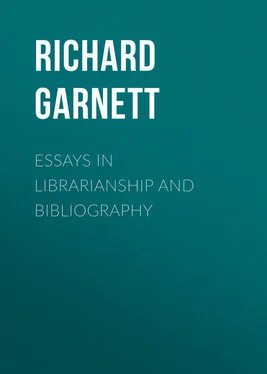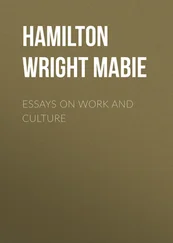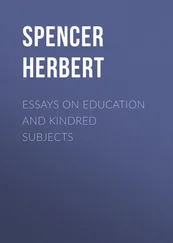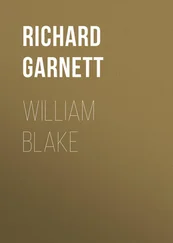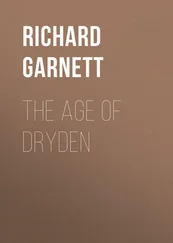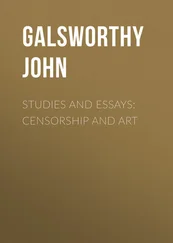Richard Garnett - Essays in Librarianship and Bibliography
Здесь есть возможность читать онлайн «Richard Garnett - Essays in Librarianship and Bibliography» — ознакомительный отрывок электронной книги совершенно бесплатно, а после прочтения отрывка купить полную версию. В некоторых случаях можно слушать аудио, скачать через торрент в формате fb2 и присутствует краткое содержание. Жанр: foreign_antique, foreign_prose, на английском языке. Описание произведения, (предисловие) а так же отзывы посетителей доступны на портале библиотеки ЛибКат.
- Название:Essays in Librarianship and Bibliography
- Автор:
- Жанр:
- Год:неизвестен
- ISBN:нет данных
- Рейтинг книги:4 / 5. Голосов: 1
-
Избранное:Добавить в избранное
- Отзывы:
-
Ваша оценка:
- 80
- 1
- 2
- 3
- 4
- 5
Essays in Librarianship and Bibliography: краткое содержание, описание и аннотация
Предлагаем к чтению аннотацию, описание, краткое содержание или предисловие (зависит от того, что написал сам автор книги «Essays in Librarianship and Bibliography»). Если вы не нашли необходимую информацию о книге — напишите в комментариях, мы постараемся отыскать её.
Essays in Librarianship and Bibliography — читать онлайн ознакомительный отрывок
Ниже представлен текст книги, разбитый по страницам. Система сохранения места последней прочитанной страницы, позволяет с удобством читать онлайн бесплатно книгу «Essays in Librarianship and Bibliography», без необходимости каждый раз заново искать на чём Вы остановились. Поставьте закладку, и сможете в любой момент перейти на страницу, на которой закончили чтение.
Интервал:
Закладка:
Another subject which naturally attracted the attention of the Association from the first was that of binding. There are few matters of more consequence, and the increasing degeneracy of the bindings of ordinary books, as issued by the publishers, renders it of more importance to librarians than ever. This deterioration is, of course, likely to extend to books bound for libraries, if librarians are not very vigilant. I was amused the other day with the remark of an American librarian, that he bound his newspapers in brown. I thought he exercised a wise discretion, for the newspapers which were bound in green at the Museum have become brown, like the withered leaf, and might as well have been so from the first. I do not know that any important progress has been made in ordinary binding, although our American friends, in their Library Journal , are continually giving us ingenious hints which may prove very useful. The buckram recommended by Mr. Nicholson has, I think, maintained its ground; we use it to some extent at the Museum, and are well satisfied. Goatskin also has been recently employed; it is a beautiful binding, but liable to injury when a volume is subjected to much wear and tear – a point which should always be carefully considered before the binding of a book is decided upon. The better descriptions of cloth seem to be improved, and very recommendable for books in moderate use. I am continually struck with the excellence of the vellum bindings we get from abroad, especially of old books, and wish very much that means could be found of cheapening this most excellent material. In one very important description of binding – roan and sheepskin – I fear we are going back; not from any fault of the binders, but from the conditions of modern life. I am informed that owing to the early age at which the lives of sheep are now prematurely terminated, it is impossible to obtain sheepskin of the soundness requisite for binding purposes, and that books for which it is used must be expected to wear out much sooner than formerly. It is also said, however, that this does not apply to the sheep slaughtered in Australia and New Zealand, and if this is the case it may be worth the while of librarians and bookbinders to enter into communication with the farmers of those parts, through the medium of the Colonial Agents General or otherwise.
Any positive progress that can be reported in binding rather relates to the study, appreciation, and reproduction of old and precious bindings, especially of foreign countries, and is mainly summed up in the record of the exhibitions of bindings which have been held here, the literary labours of Miss Prideaux and others, the numerous splendid reproductions in chromo-lithography, published or to be published here or abroad, and the tasteful designs of Mr. Zaehnsdorf, Mr. Cobden-Sanderson, and other artists in this branch, which I am glad to see encouraged by the Arts and Crafts Exhibition. The very deterioration of the bindings for the many, to which I have had occasion to refer, stimulates the production of choice bindings for the few. Liberal patronage will not be wanting, and there is no reason why we should not have among us now Bedfords, Roger Paynes, and even craftsmen of a more purely artistic type. Among the signs of the times in this respect is to be noted the establishment of the Grolier Club at New York, celebrated for the admirable examples it has collected, and the interest and value of its publications.
There is another subject which came before the Conference of 1877, which, but for our American friends, I should be unable to include in my survey without infringing my principle of touching upon those subjects alone in which substantial progress can be reported. It is that of co-operative cataloguing, the subject of a note by M. Depping, and indirectly of the late Mr. Cornelius Walford's paper on a general catalogue of English literature. The success of Poole's Index has proved that co-operative cataloguing, or at least indexing, is feasible. I doubt if there is another instance, except one – a work of great national importance, whose long condition of suspended animation and eventual successful prosecution eloquently evince under what conditions co-operation is practicable or impracticable. This is Dr. Murray's great English dictionary, originally a project of the Philological Society. Until Dr. Murray was invented, the Philological Society could do nothing. The scheme absolutely required some one of competent ability who would go into it heart and soul, sacrifice everything else to it, and devote his whole time to it. When such a man was found in Dr. Murray it is astonishing how soon willing co-workers abounded, and how readily the mass of unorganised material already collected was got into shape. So it will be, I believe, with all co-operative schemes. They will require a head, a single directing mind. Whether this will be forthcoming for the very useful work projected by the Association, the completion of the British Museum Catalogue of early English printed books by the preparation of a supplementary catalogue of such of these books as are not in the Museum, is to me problematical, but time will show. I am, for my part, of opinion that the undertaking had better be delayed until the publication of the second edition of the Museum Catalogue, which it is intended to issue as soon as the printing of the general catalogue is complete, as this would considerably abridge the labour of preparing the supplement. I have already, in the paper read at Paris last year, expressed my opinion that the Museum Catalogue, when complete, will afford the only practicable basis for the far more important and extensive undertaking of a universal catalogue. Success in such an undertaking would indeed be the triumph of successful co-operation, but when the enormous difficulties of establishing co-operation among the libraries, not of a single country only, but of the whole civilised world, are considered, the difficulty may well appear insuperable, until the various countries shall have approximated much more nearly to the condition of a single country than they have done as yet. Such, however, is the unquestionable tendency of the times, depending upon causes which, so far as can be foreseen, appear likely to operate with augmented intensity, and this movement may proceed far enough to eventually bring with it the universal catalogue along with the universal language, the universal coin, and the universal stamp. Till within a short time ago I had reason to believe that a co-operative catalogue, which I myself proposed several years ago, was on the point of being undertaken. Some may remember that I once read a paper at a London monthly meeting on the preparation of an index of subjects to the Royal Society's catalogue of scientific papers, without which that great store of information is in a measure useless. This paper was re-published in Nature , the idea was taken up by Mr. Collins of Edgbaston, the compiler of the indexes to Herbert Spencer's works, and a few weeks ago success seemed about to crown his efforts. I now learn with regret that the scientific men who met in conclave on the project have not been able to agree, and I suppose it will remain in abeyance until some Hercules-Littré arises and does it by himself.
Want of time precludes me from dwelling at length upon any other subjects than those brought forward at the first Conference of our Association. A brief enumeration, however, of some of the additional subjects discussed at ensuing meetings, to within the ten years immediately preceding our last meeting, will be serviceable as showing the extent of its activity, and, did time permit, it would be possible to show that satisfactory progress has been made in many of the directions indicated. At Oxford, in 1878, besides recurring to many of the themes previously treated, the Conference discussed the condition of cathedral and provincial libraries, printing and printers in provincial towns, size-notation, and, most interesting of all, the salaries of librarians. At Manchester, in 1883, it considered the consolidation and amendment of the Public Libraries Acts, the grouping of populous places for library purposes, the free library in the connection which it has or should have with the Board School, the extent to which novels should be permitted in free libraries, and security against fire. In 1880, at Edinburgh, the libraries of Scotland, and early printing in Scotland, were the subjects of valuable communications, as were press and shelf notation; copyrights, the disposal of duplicates, and the subject which may be said to lie at the root of all the rest, "The Librarian and his Work." In 1881, at London, besides important subjects previously discussed, we heard of law libraries and library buildings. In 1882, at Cambridge, a meeting ever to be remembered for the hospitality and kindness of our distinguished and lamented President – Henry Bradshaw – the Association heard for the first time of progress actually made in printing the British Museum Catalogue, and papers were read on the all-important subject of librarianship as a profession; on the work of the nineteenth-century librarian for the librarian of the twentieth; on public documents and their supply to public libraries; on local bibliography; on the cataloguing of periodicals and academical publications; and on electric lighting.
Читать дальшеИнтервал:
Закладка:
Похожие книги на «Essays in Librarianship and Bibliography»
Представляем Вашему вниманию похожие книги на «Essays in Librarianship and Bibliography» списком для выбора. Мы отобрали схожую по названию и смыслу литературу в надежде предоставить читателям больше вариантов отыскать новые, интересные, ещё непрочитанные произведения.
Обсуждение, отзывы о книге «Essays in Librarianship and Bibliography» и просто собственные мнения читателей. Оставьте ваши комментарии, напишите, что Вы думаете о произведении, его смысле или главных героях. Укажите что конкретно понравилось, а что нет, и почему Вы так считаете.
